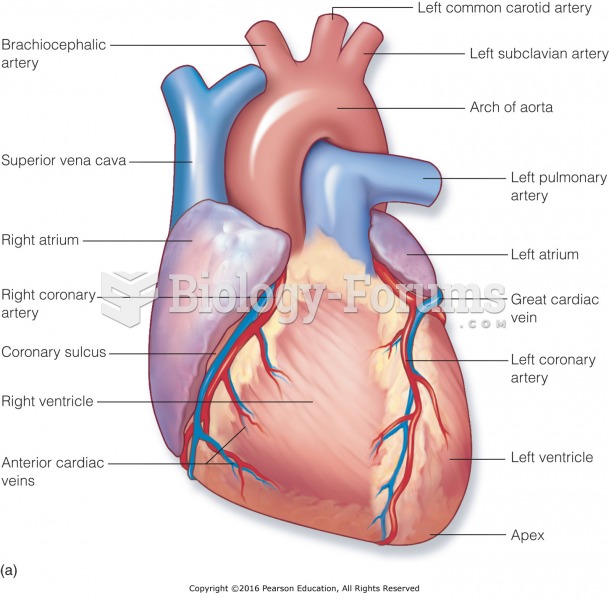|
|
|
The average office desk has 400 times more bacteria on it than a toilet.
In the United States, there is a birth every 8 seconds, according to the U.S. Census Bureau's Population Clock.
Addicts to opiates often avoid treatment because they are afraid of withdrawal. Though unpleasant, with proper management, withdrawal is rarely fatal and passes relatively quickly.
Bisphosphonates were first developed in the nineteenth century. They were first investigated for use in disorders of bone metabolism in the 1960s. They are now used clinically for the treatment of osteoporosis, Paget's disease, bone metastasis, multiple myeloma, and other conditions that feature bone fragility.
Human stomach acid is strong enough to dissolve small pieces of metal such as razor blades or staples.







